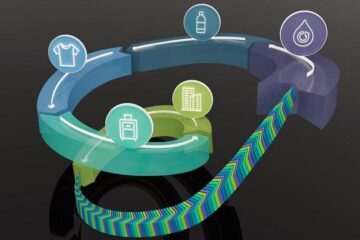Land Use, Nature Conservation and Agricultural Policies in Germany

The report provides a comprehensive evaluation of national and European environmental policies covering the years 2004 to 2008. Key sections of the SRU report dealing with German national environmental policy approaches are being made available in English in a series of volumes.
The translation of the second volume is now complete and will be of interest to policy makers and practitioners interested in the policies, strategies and programs of a country leading in environmental protection. Volume 2 assesses recent developments in German land-use related policy-making in the areas of nature conservation, soil protection and agri-environmental policies. Although Germany's international reputation inititally was damaged by its slow implementation of the Habitats Directive, Germany has developed a strong legal framework for addressing biodiversity outside protected areas.
The key instruments of environment-related land-use policies are the requirements for “good agricultural practice”, landscape planning, and the provisions governing interventions in nature and landscape. These provisions establish a hierarchy of duties, starting with the principle of prohibiting interventions and ending with rules for financial compensation for unavoidable interventions. The effectiveness of this system of instruments for nationwide environmentally oriented land-use policies has come under considerable pressure due to efforts to increase flexibility as well as due to a lack of financial resources and staff for implementation.
The SRU cautions against the possibility that these trends could endanger a nature protection approach which offers interesting solutions to the new challenges posed by climate change and biodiversity loss.
Volume 2 can be downloaded at:
http://www.umweltrat.de/cln_135/SharedDocs/Downloads/EN/01_Environmental
_Reports/2008_Environmental_Report_Vol_2_selected_chapters.html
For further information about the SRU, please consult: www.umweltrat.de or contact Dr. Christian Hey at 0049 (0) 30 26 36 96 0.
The Advisory Council on the Environment (SRU) was founded in 1971 to advise the German government. The Council is made up of seven university professors from a range of different environment-related disciplines. This ensures an encompassing and independent evaluation from a natural scientific and technical as well as from an economic, legal, ethical and political science perspective.
The Council has currently the following members:
Prof. Dr. Martin Faulstich (Chair), Technische Universität München; Prof. Dr. Heidi Foth (Vice Chair), Universität Halle-Wittenberg; Prof. Dr. Christian Calliess, Freie Universität Berlin; Prof. Dr. Olav Hohmeyer, Universität Flensburg; Prof. Dr. Karin Holm-Müller, Rheinische Friedrich-Wilhelms-Universität Bonn; Prof. Dr. Manfred Niekisch, Zoologischer Garten Frankfurt; Prof. Dr. Miranda Schreurs, Freie Universität Berlin
Media Contact
More Information:
http://www.umweltrat.deAll latest news from the category: Ecology, The Environment and Conservation
This complex theme deals primarily with interactions between organisms and the environmental factors that impact them, but to a greater extent between individual inanimate environmental factors.
innovations-report offers informative reports and articles on topics such as climate protection, landscape conservation, ecological systems, wildlife and nature parks and ecosystem efficiency and balance.
Newest articles

Novel genetic plant regeneration approach
…without the application of phytohormones. Researchers develop a novel plant regeneration approach by modulating the expression of genes that control plant cell differentiation. For ages now, plants have been the…

Roadmap to close the carbon cycle
A holistic approach to reach net-zero carbon emissions across the economy. A major approach to achieving net-zero carbon emissions relies on converting various parts of the economy, such as personal…

Cost-effective, high-capacity, and cyclable lithium-ion battery cathodes
Charge-recharge cycling of lithium-superrich iron oxide, a cost-effective and high-capacity cathode for new-generation lithium-ion batteries, can be greatly improved by doping with readily available mineral elements. The energy capacity and…





















